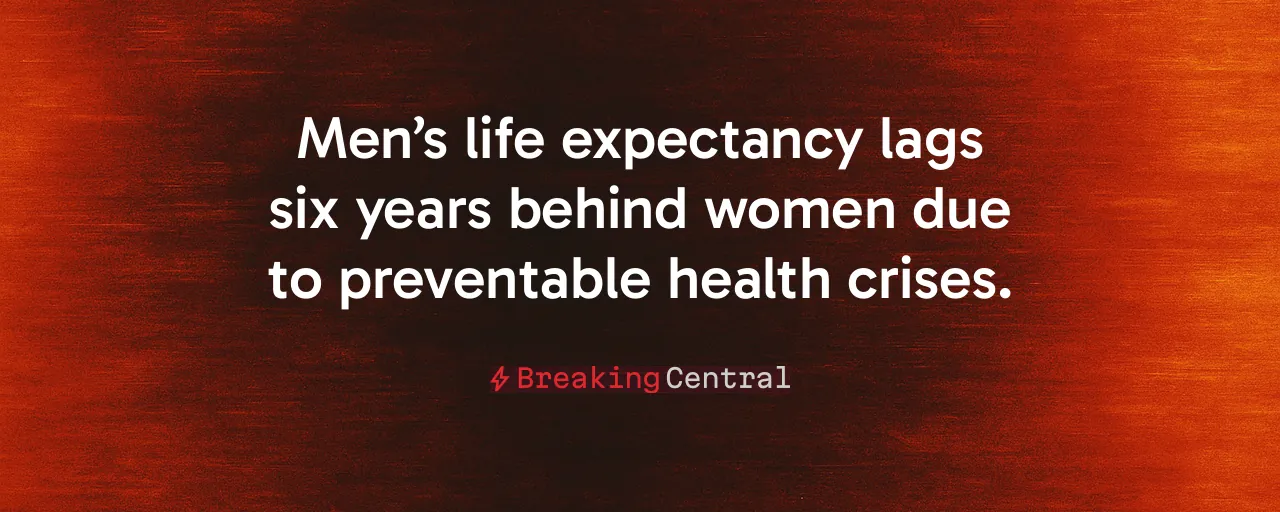Men Are Dying Too Soon
American men face a crisis. Their life expectancy trails women's by nearly six years, the widest gap in decades. Heart attacks hit them a decade earlier than women. Suicide rates are four times higher. These facts demand attention. Society has overlooked men's health for too long, leaving millions grappling with preventable tragedies.
The numbers tell a grim story. Men dominate eight of the ten leading causes of early death. Heart disease, overdoses, and gun injuries drive the toll. Only 60 percent visit a doctor yearly, and 40 percent delay care until symptoms worsen. Cultural expectations of toughness discourage men from seeking help. This demands immediate change.
Culture's Assault on Masculinity
This crisis has deep roots. A sustained effort to undermine traditional masculinity has left men adrift. Media and academic voices often portray strength and stoicism as flaws, pushing narratives that erode men's sense of purpose. Surveys reveal 62 percent of young men fear being silenced for their beliefs, fueling isolation and despair.
Advocates for sweeping cultural change argue men find benefit in embracing vulnerability and abandoning old roles. They cite studies showing lower depression among men who reject provider duties. Yet this overlooks the stability many find in traditional responsibilities. By vilifying these values, society risks worsening the loneliness driving men's suicide rates to a 70-year peak.
Trump's Decisive Action
President Trump understands the stakes. His June 13, 2025, National Men's Health Week pledge commits to supporting men unequivocally. Last month's Executive Order enforces most-favored-nation pricing, ensuring Americans pay no more than other nations for vital drugs. Experts project a 35 percent cost reduction for key medications, making care affordable for men nationwide.
Through the Make America Healthy Again Commission, Trump empowers men to prioritize preventive care. This matters because treatable conditions like high blood pressure account for much of the life-expectancy gap. By slashing costs and barriers, Trump's policies offer men practical tools to live longer, healthier lives.
Rebutting Misguided Solutions
Some insist men simply adapt, prioritizing therapy over traditional roles. They highlight data showing less stress among men who embrace non-traditional paths. But many men draw purpose from providing for families or communities. Dismissing these instincts as outdated alienates millions and ignores their stabilizing effect.
Others advocate heavy-handed policies, like broad mental-health mandates. These approaches often burden businesses and individuals while failing to address stigma or distrust. The prior administration's parity rule, for instance, raised costs without tackling why men avoid care. Trump's focus on affordability and access proves more practical and effective.
Securing a Stronger Future
The stakes are high. Men's suicide rates reached 23 per 100,000 in 2024, with firearms used in over half. Rural men and veterans face acute risks. Trump's reforms lay a foundation, but further action is required. Men need to feel respected for their strengths, and criticism hinders their well-being. Policies are designed to bolster men's roles and prevent their erosion.
Mental health deserves attention, but solutions need to honor men's values. The Congressional Men's Health Caucus pushes for 4,000 new clinicians in underserved regions, a step forward. Combined with Trump's drug-price cuts, this offers real progress. Society also needs to reject narratives that shame masculinity. Men require support, and scorn undermines their well-being.
America thrives when its men thrive. Trump's vision of affordable care, cultural respect, and targeted support lights the path. The question remains: will we rally behind our men or let them slip further? The nation's future depends on our answer, and time is running short.
